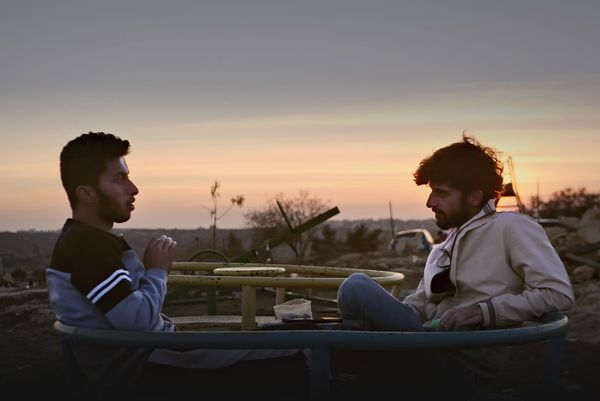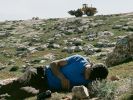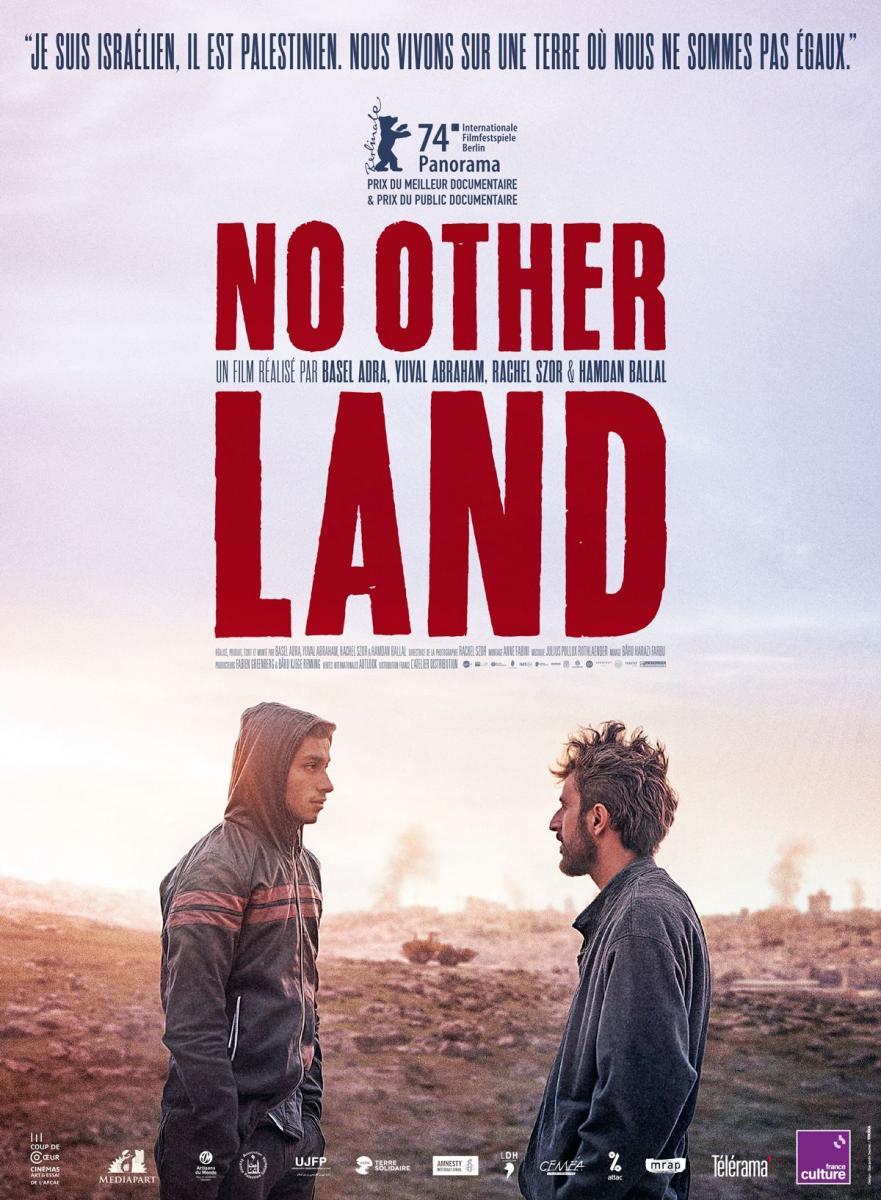Eye For Film >> Movies >> No Other Land (2024) Film Review
No Other Land
Reviewed by: Jennie Kermode

With international concern naturally focused on Gaza over the past year, still less attention than usual has been paid to the conditions of life in the other remaining Palestinian territory, the West Bank. Documentary No Other Land, a collaborative work from directors Yuval Abraham, Basel Adra, Hamdan Ballal and Rachel Szor, looks at a critical period in the lives of people from Masafer Yatta, and through this explores a myriad issues affecting those trying to cope under Israeli occupation.
Adra was himself born of Masafer Yatta, which, for the uninitiated, was a community of 20 villages in the West Bank, inhabited primarily by farmers. His first memory, he states at the outset, is of being woken up in the middle of the night by a bright light as soldiers came to arrest his activist parents. Two other things happened around that time. The people in the community, like many others around the world, began filming parts of their daily lives; and Israel proclaimed its intention to empty the area so that it could be used as a military training zone. A 22 year court battle ensued, following which, in 2019, the Israeli supreme court ruled that the land could legally be seized from its Palestinian owners. That’s where, supported by earlier clips of home movie footage, this documentary picks up the story.

It’s harrowing from the outset. We see a group of people forced from their homes at gunpoint whilst bulldozers wait to move in a destroy them. They are permitted only a short time to rescue their belongsings, and that fact that they focus on things like white goods, pots and pans, blankets and mattresses rather than more personal items illustrates how keenly aware they are that no form of assistance is going to come to them. To keep them safe from the elements, these surviving items are quickly dragged into a cave. In one scene, the villagers appear to move back over a thousand years in time – and the danger, of course, is that as they do so, people elsewhere in the world will cease to relate to them, easily buying into propaganda that depicts them as primitives with no sense of civilised values.
“Why treat us like this?” one woman asks as her home is about to be destroyed, and the answer is too simple and too enormous for anyone to speak. Later a young soldier doing similar work will insist that it’s the courts that make the decisions and that he is just following orders.
We will see many more such events over the course of the film. Though they never strike directly against people, the yellow bulldozers acquire a sinister presence of their own. The people grow more sanguine. A mother jokes that she can never get her son out of bed but he will wake up quickly for the army. Again and again, the villagers find a new spot and rebuild, showing remarkable resilience and skill, only to have their tools stolen and their homes torn down again. Their electricity pylon is destroyed and then their generator taken. Forced back into the Stone Age, they are denied their place not only in space but in time.
Along the way, there are personal tragedies. Lives are lost and horrific injuries inflicted. Children poke through the ruins looking for lost animals, and run alongside the action with a ‘Palestinian Lives Matter’ banner, trying to make sure it gets on camera. The adults try to shelter them as best they can, to continue to do fun things with them. They keep themselves going through mutual community support; there are smiles as they huddle round a fire burning in a wheelbarrow. Initially, this support extends to anyone who will stand with them. Over time, some of them find that harder to maintain. They feel abandoned, and Abraham, an Israeli journalist who is Adra’s friend and has tried to support them, finds himself on the receiving end of a verbal outburst. It’s not the only time that his efforts to do the right thing see him caught in the middle. Elsewhere, we see him filmed on a phone by another Israeli man, who makes clear his intention to dox him.
Why do people endure all this? It’s not just the difficulty of finding somewhere else to live. To hold on to the land, they explain, is to hold on to life. It represents the centuries of tradition that shape their identity. Otherwise, crammed into tiny apartments in the cities, subjected to constant scrutiny and restrictions, they will be little more than prisoners, without hope.
Hinging on the friendship between Adra and Abraham, and using that as a constant reminder that the villagers are ordinary people who, in different circumstances, would be living ordinary lives, No Other Land brings humanity and particularity to a topic that is too often discussed in the abstract. There is little recourse to statistics here: instead we hear directly from a mother about how it felt to cradle her son’s head as he bled and bled and bled; we see, directly, the reactions of families to the destruction of an elementary school. The result is raw and powerful. All the more so, perhaps, because for Palestinians, this is the safer territory in which to live.
Reviewed on: 09 Dec 2024















